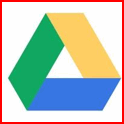The Google Desktop Theory
Last September the Google Desktop Team published the following announcement on their blog:

Google Desktop Update
Friday, September 02, 2011 12:48 PM
In 2004, Google launched Google Desktop, a program designed to make it easy for users to search their own PCs for emails, files, music, photos, Web pages and more.
Desktop has been used by tens of millions of people and we’ve been humbled by its usage and great user feedback. However, over the past seven years we’ve also witnessed some big changes in how users store and access their own data, with many moving to web-based applications. There has been a significant shift from local to cloud-based storage and computing, as well as integration of Google Desktop functionality (like local search) into most modern operating systems. This is a positive development for users and we’re excited that most people now have instant access to their personal information. As such, we’ll be discontinuing support for Google Desktop, including all of the associated APIs, services, plugins and gadgets.
As of September 14, Google Desktop will no longer be available for download, and existing installations will not be updated to include new features or fixes.
Thanks again to all of our users. It’s been a fun journey.
Posted by the Google Desktop Team
I have really severe complaints about such a decision. I tell you why. Let us analyze first what their justifications:
There has been a significant shift from local to cloud-based storage and computing…
Well, this is a trend, of course, but it is really a consumer’s trend or a company’s one? Storing your personal and sensitive data on the cloud requires a high level of trusting against the network and hosting providers. How safe are those mechanism and, if they are safe, what’s about the possibility for government agency or even industrial trusts to access your data?

Furthermore cloud approach requires a continuous connection to the web, but networks are not always available and by sure rarely available by free. Free wi-fi access is not so easy to find and if you are a frequent traveler you can easily have no access to the web by your laptop. Of course you might use smartphones an tablets, but the former are too small for continuous usage and the latter have not yet the capabilities of a good laptop.
Last but not least, in a world where web services are rapidly discontinued by providers at a short notice — examples are the Splinder blogging platform and Google Desktop itself — who will guarantee that even Google Drive, for instance, will not be discontinued in a couple of years?
…as well as integration of Google Desktop functionality (like local search) into most modern operating systems.
Local search in the most recent operating system surely improved but, for example, the Windows 7 search has not all the capabilities of Google Desktop Enterprise (GDE), the results are not so detailed, the search is not so fast, and it cannot snoopy in all the file formats that were available in GDE. For example, Outlook or Lotus Notes mail databases. Furthermore local search often cannot be customized by third-parties plug-ins to support additional format and features.
Recently mobile devices overtook desktops and laptops as far as web access is concerned, but the way you use a tablet is different from the way you use a laptop. Different tools, different usage, different purposes and, by the way, different methods and costs to access the network.
So why such a decision? In my opinion Google is trying to push mobile devices and platforms to sustain their web services, as Google Drive, for instance. So, it is not a matter of an existing change but forcing a change according to company-oriented strategy. In theory this is not necessarily bad, but it is really in the interest of consumers?




















Please use Facebook only for brief comments.
For longer comments you should use the text area at the bottom of the page.
Facebook Comments